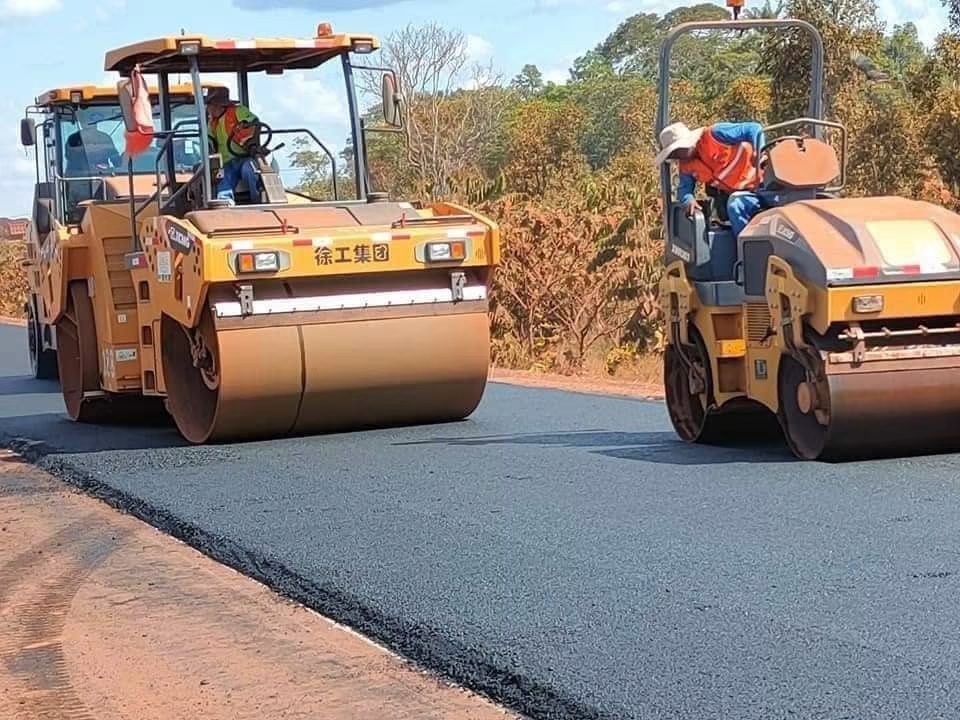The construction company “China Railway Group Limited” (CREC) will be responsible for developing, designing, and constructing the Potosí-Cochabamba highway in Bolivia.
However, the project could wipe out the ecological wealth of the department of Potosí, reports the independent investigative journalism platform “Diálogo Chino.”
“In the last decade, Chinese investments in mining and the construction of infrastructure projects such as highways have gained a strong foothold in Bolivia,” said environmental expert Mariel Guerra, a member of the Bolivian nongovernmental organization (NGO) Potosí Ecology Society.

“Where it [Beijing] is going, it is creating a lot of environmental, labor, and social problems,” she added.
The project, tentatively named “Carretera de la Integración Tiku” (after the traditional dance of the Andean department), will begin in Tinguipaya, Potosí, and end in Achamoco, Cochabamba.
It will be 259 kilometers long, of which 222 km will pass through the territory of more than 30 indigenous communities.
“Diálogo Chino” also pointed out that the route connecting the two departments will damage archaeological zones, several ecological zones, and a mineral deposit.
Potosí is a fertile land with a great diversity of wildlife, rich in mineral resources, and where most community members are involved in agriculture.
“The Chinese company plans to put the road into operation in 2023. If that is the case, it will be put into operation without an environmental impact assessment,” Guerra explained. “The problem with this type of project is that they don’t have an environmental permit.”
OTHER EFFORTS
According to “CREC,” the road project will improve the quality of life of communities in Potosí. “But the project has other objectives than just the welfare of the communities,” Guerra pointed out.
“The road will pass through the Mallhu Khota deposit, where tons of gold, silver, copper, indium, and gallium exist.
If anything, the company [CREC] wants to exploit that mine.” China’s interests in Bolivia “are its mining resources such as gold and the exploitation of lithium for the production of batteries for electric vehicles,” the environmental expert affirmed.
“The fact that China is involved in road construction opens up opportunities to facilitate this exploitation.”
For example, another Chinese company, the state-owned China Harbour Engineering Company, has won contracts to build seven road projects in the last four years alone, reports Bolivian news platform Los Tiempos.
As of October 2019, Beijing had more than 60 companies in Bolivia developing 55 “cooperation” projects.
VIOLATIONS
The characteristic of relations between China and Bolivia are sparse information, contradictions in statements by authorities, and secrecy about contracts and financing agreements, according to the report “Public Investment and Chinese Financing in Latin America” by the Latin American NGO Regional Coalition.
“Chinese companies sign contracts with the [Bolivian] government and pressure it to hire some of its personnel,” Guerra said. “Many people come from China to work in the country, so they take jobs. They are predators.”
In Bolivia, “CREC” is among the companies most frequently reported for violations of social and labor rights, such as physical and psychological abuse and lack of industrial and social security, according to the Bolivian Center for Labor and Agrarian Development Studies website.
The Potosí-Cochabamba project “will have not only environmental but also social consequences.
Some communities have been told that they will be displaced from their settlements so the highway can be built; therefore, they will be culturally displaced from their environment. Fauna will also be affected; there are a lot of things that are not taken into consideration.
According to the Collective on Chinese Financing and Investment, a coalition of Latin American civil society organizations, the patterns of human rights violations by Chinese companies operating in Latin America include the right to live in a healthy environment, environmental damage, violations of participation, and consultation, the right to territory, integrity, freedom and security, labor and association rights, and health.
With information from Latina Press

